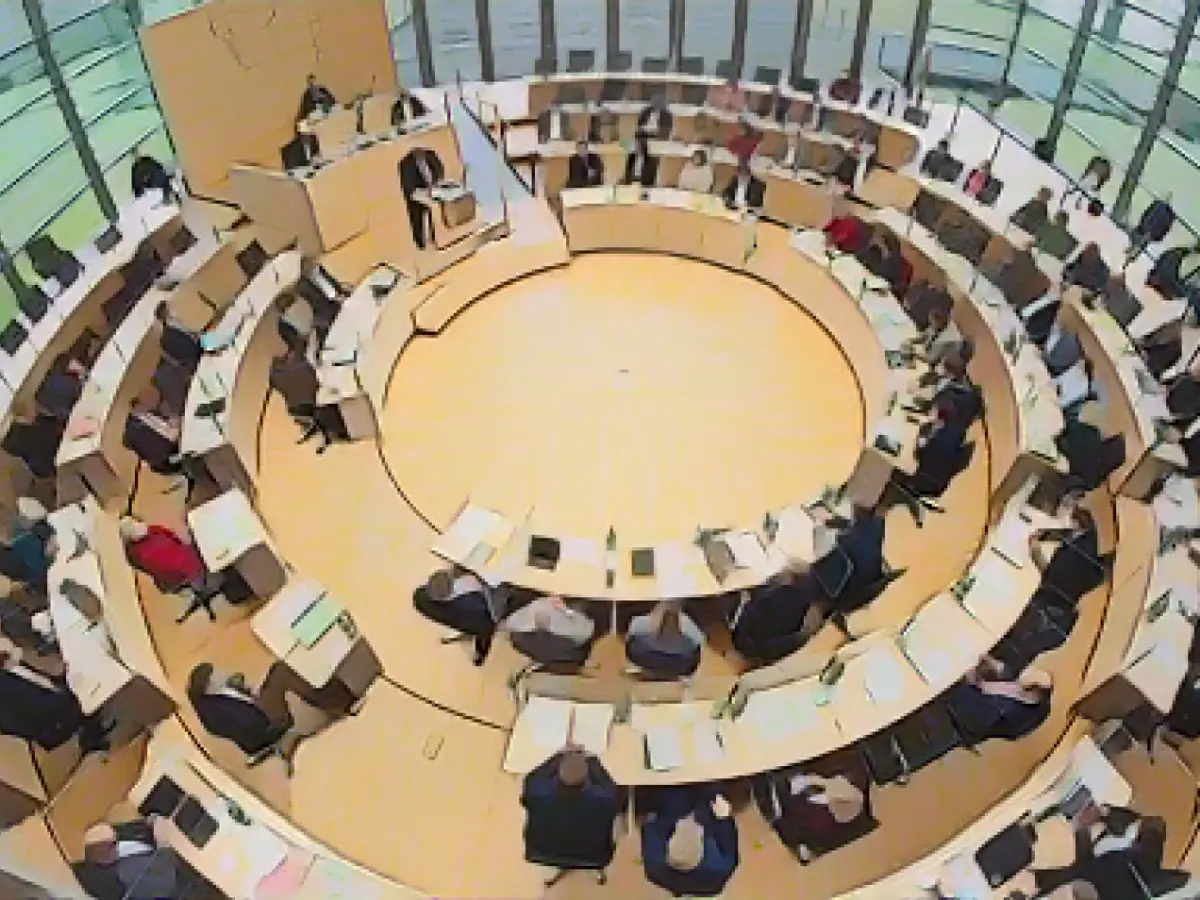Educating Schleswig-Holstein's Future: A Parliamentary Debate on Pisa Study Results
The disappointing performance of German students in the international Pisa study has sparked debate in Schleswig-Holstein's parliament. Politicians from all parties agree that improvements are crucial, with a particular focus on addressing disadvantages faced by pupils with a migration background.
Serpil Midyatli, the newly appointed opposition leader of the SPD, argued that it's unjust for children with a migration history to face greater challenges in education than their peers worldwide. She called for a shift in perspective, viewing children with a migration background as an asset, bringing hope and diversity to schools.
The SPD proposed investing in education through a special fund, highlighting the urgent need to address social inequality in schools. They pointed out the significant shortage of nursery places, which often determines opportunities for children.
Karin Prien, the education minister from the CDU, defended the government's education policy, stating that they were creating new teaching positions. However, Midyatli critiqued the proposed increase in class size for German as a second language (DAZ) students, appealing to the importance of individualized attention.
Martin Balasus, a CDU education politician, advocated for the principle of performance in education, stressing the necessity of a strong command of German spelling and arithmetic for all school leavers. Lasse Petersdotter, the Green parliamentary group leader, voiced concerns about the persistent influence of a student's origin on their educational success.
The FDP urged a turnaround in education policy, underscoring the long-term problems with budget cuts in the education sector. They echoed Midyatli's critiques, noting that Germany has not sufficiently prepared its schools for the country's historical status as an immigration nation.
According to Pisa test results published in 2022, German students' performance in reading, mathematics, and science had reached a new low. The responsibility for these poor scores, the OECD reported, is not exclusively linked to the pandemic; instead, there's a more profound, underlying issue at play.
Further Insights:
Addressing educational disparities for children from migration backgrounds involves taking a multi-faceted approach. By focusing on migration policy, investing in public infrastructure, and leveraging the benefits of digital transformation, efforts can be made to support these students effectively.
- Migration Policy and Education: The Kiel Policy Brief advocates for a more comprehensive approach to migration policy, focusing on work and education rather than risk prevention. This could include targeted and legal migration pathways tailored to meet the demands of the German labor market, ultimately benefiting the integration and education of migrant children [5].
- Public Infrastructure and Education Investments: The South Schleswig Voter Association (SSW) emphasizes the need for wider investments in public infrastructure and transportation in Schleswig-Holstein. While this may not directly address educational disparities, it shows a broader commitment to supporting the community's well-being and infrastructure, which indirectly benefits educational institutions [1].
- Digital Transformation: The SSW also advocates for accelerating the digital transformation of both the economy and public administration. This could involve modernizing educational systems to better integrate technology, ultimately improving learning outcomes for students [1].
While these insights complement the broader discussion on education policy and migration, deeper research would be needed to determine their direct impact on addressing western German states' performance in the Pisa study, primarily for children with a migration background.








